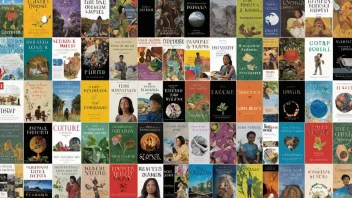In the realm of fantasy literature, themes of prophecy and fate often play a pivotal role in shaping narratives and character arcs. These elements not only drive the plot but also delve into deeper philosophical questions about free will and destiny. Below, we explore some frequently asked questions regarding these compelling themes in fantasy storytelling.
What is the significance of prophecy in fantasy literature?
Prophecy serves as a narrative device that foreshadows future events, guiding characters towards their destinies. It creates an air of inevitability and suspense, allowing readers to anticipate outcomes while also questioning the characters' ability to change their fates.
How does fate influence character development in fantasy stories?
Fate often acts as a catalyst for character growth. Characters may struggle against their destined paths, leading to personal conflicts and moral dilemmas. This struggle can deepen their arcs, making them more relatable and compelling to the reader.
Can characters change their fate in fantasy narratives?
While many fantasy stories suggest that fate is unchangeable, others explore the idea of free will. Characters may find ways to defy or reinterpret prophecies, illustrating the tension between destiny and choice. This conflict often forms the crux of the narrative.
Are there famous examples of prophecy in fantasy literature?
- The Lord of the Rings by J.R.R. Tolkien features prophecies that guide the characters' actions and hint at their ultimate triumph.
- A Song of Ice and Fire by George R.R. Martin includes various prophecies that impact the fate of multiple characters, often leading to unexpected consequences.
- Harry Potter by J.K. Rowling revolves around the prophecy concerning Harry and Voldemort, which shapes the entire series' narrative arc.
What are the common themes associated with fate in fantasy?
Common themes include the struggle against predetermined paths, the quest for identity, and the exploration of moral choices. Authors use these themes to challenge characters and engage readers in philosophical discussions about destiny and control.
How do different cultures portray prophecy and fate in their fantasy writing?
Cultural backgrounds can significantly influence the portrayal of prophecy and fate. For instance, in many Western narratives, fate is often seen as a fixed path, while Eastern literature might emphasize the fluidity of destiny and the importance of harmony with the universe.
Why do readers find prophecies compelling?
Readers are drawn to prophecies because they introduce an element of mystery and suspense. They create a framework within which characters operate, allowing readers to engage with the unfolding drama and speculate on possible outcomes.
How can writers effectively incorporate prophecy into their stories?
Writers can weave prophecy into their narratives by ensuring it is intricately connected to character development and plot progression. It should not merely serve as a plot device but should resonate with the themes of the story and challenge characters in meaningful ways.
In conclusion, the themes of prophecy and fate in fantasy storytelling enrich narratives and deepen reader engagement. They invite us to ponder the balance between destiny and free will, making us reflect on our own lives while we immerse ourselves in the fantastical worlds created by authors. As we continue to explore these captivating elements in literature, we are reminded of the power of storytelling to question, challenge, and inspire.






